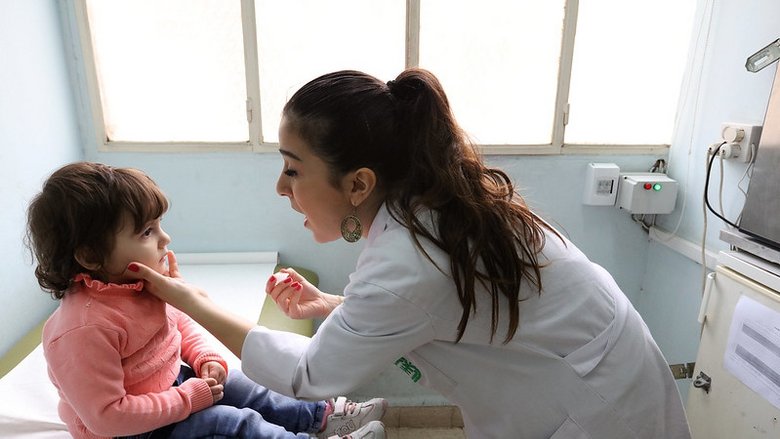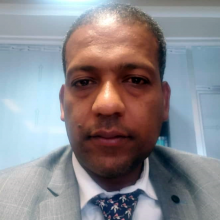Challenge
Health systems anchored in strong primary health care (PHC) are missing from many places around the globe, especially where they are needed most. As a result, countries, regions and the world remain vulnerable to health outbreaks and other emergent threats, as well as to long-term structural trends reshaping the health care environments in non-crisis times. The COVID-19 pandemic starkly revealed that without strong PHC, countries will struggle to deliver crucial health services, including vaccinations, that are essential to health security, stability, and prosperity. The report’s focus reinforces Sustainable Development Goal 3: Ensure healthy lives and promote well-being for all at all ages.
Approach
To drive health gains in the 21st century, PHC systems need to be more resilient and reach new levels of performance. Now, more than ever, governments must recommit to improving people’s health, achieving universal health coverage, and preventing future health crises. Well-functioning health systems provide health security, stability, and prosperity. The report charts an agenda toward reimagined, fit-for-purpose PHC. It reflects a renewed understanding of global and local vulnerabilities and opportunities in the post COVID world and shows how governments can remake their primary health care systems and how partners like the World Bank can support this vital work.
The following approaches are necessary to re-imagine and strengthen PHC systems: Especially as countries recover from the COVID-19 pandemic, they would do well to:
Adopt a multi-disciplinary team-based approach that offers integrated, responsive, continuous and community-oriented care. Teams may include a mix of community health workers, registered nurses and general practice or family medicine specialists working collaboratively.
Reform health care workforces through training, deployment, management, evaluation and compensation of health care workers. Revamp medical education and provide incentives for health workers to serve in neglected communities.
Provide needed financing. An additional US$200 billion of domestic and international financing globally per year may be required through 2030 for low- and middle-income countries to improve PHC.
Results
The report achieved results in areas related to awareness, alignment, and informing World Bank Programs.
- Raising Awareness: The report generated significant interest amongst partners, key stakeholders and global media. By March 2023, the report and the 2-page summary had been downloaded over 10,000 times, and the Bank was featured in numerous news articles from global media outlets that discussed primary health care.
- Increasing Alignment with Partners: This work deepened the partnership between WHO, the Bill and Melinda Gates Foundation, the Global Financing Facility for Women, Children and Adolescents (GFF) and the World Bank around how best to strengthen PHC. This collaboration was put into practice through joint work supporting countries through technical assistance and financing. In Ghana, the Bank and the GFF are jointly financing a results-based Primary Health Care Investment Program (US$181 million), supporting the government to scale up an innovative service delivery model (Network of Practice) which will be evaluated through the joint support from the WB, GFF and BMGF. This unprecedented alignment ensured coherence in advice to health policymakers during the global emergency.
- Informing Policy Response: The World Bank used findings from the report to inform operational discussions with governments such as Nigeria, Ghana and Gujarat State of India that have Primary Health Care reform as priority agenda. National policy makers are inspired by the vision of fit-for-purpose PHC and high-level shifts for PHC in the report. More than 60 representatives from these countries participated the Bank’s training program based on the report, expanding their knowledge on how to materialize their vision, and applying such knowledge in the dialogue with the Bank on lending operation preparation. National policy makers are inspired by the vision of fit-for-purpose PHC and high-level shifts for PHC in the report. More than 60 representatives from these countries participated the Bank’s training program based on the report, expanding their knowledge on how to materialize their vision, and applying such knowledge in the dialogue with the Bank on lending operation preparation. In early 2022, Nigeria’s Federal Ministry of Health used the report as a basis for a Primary Health Care Summit with the theme: Re-imagining Primary Health Care in Nigeria: providing a platform for rethinking primary health care in the wake and immediate aftermath of COVID-19 pandemic. Nigeria determined to make sure all citizens have access to health care within range of 5 kilometers to their places of abode. Emphasis was put on investment in primary health care, as noted by the Vice President, His Excellency, Prof Osinbajo, “…a health system is only as strong as its primary health system.”
Partners
While preparing the report, the team has benefited from valuable guidance, external review and feedback received from the Bill and Melinda Gates Foundation who also generously supported the preparation of the flagship report, World Health Organization, UNICEF, the Global Fund, and Gavi, The Vaccine Alliance. This also paved way for consistent messaging across key players in the global heath community and aligned actions towards reimaging PHC after COVID-19.
Looking Ahead
COVID-19 has exacerbated pre-existing distortions and exposed underlying system weaknesses. It has also highlighted the important role PHC must play during a health emergency through measures such as surveillance, testing and contact tracing, while maintain essential services, including vaccinations, especially for women and children.
The World Bank will continue to create awareness of the need for stronger, more resilient primary health care systems as a foundation to respond effectively to health emergencies and ensure universal health coverage. This will be reflected in the Bank’s operational and analytical work in the coming years as well as in continued collaboration and advocacy with partners and stakeholders. On the analytical side, the follow up report Change Cannot Wait: Building Resilient Health Systems in the Shadow of COVID-19 builds on the previous report and presents a new framework for making health systems resilient, how countries can build them, and where countries and partners can target investments to improve health outcomes.

